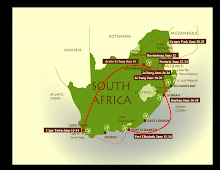A former journalism professor posted a link on his Facebook page about German captain Michael Ballack missing the World Cup due to tearing ligaments in his ankle during the May 16 FA Cup Final.
Professor Joe Ritchie is fluent in German so he almost undoubtedly read Kicker magazine or Bild or some other publication to get more insight about how much the midfielder’s presence will be missed this summer. Within moments of linking an article to his profile, I was online providing my thoughts about Ballack’s importance.
In my haste, I noted: “He will be missed, but not until the knockout phases, because Group D should be easy.”
That is what happens when one does not pay full attention. When I browsed the FIFA website, I thought the Germans were playing Ghana, Serbia and Austria. I confused “AUS” with Austria, one of the worst teams in Europe, with an experienced and gritty Australian team.
Australia have a lot to prove after a 2006 World Cup where shoddy refereeing led to their elimination in the Round of 16 against eventual champions Italy and nearly cost the Socceroos their place in the knockout phase in a victory over Croatia.
Of course Professor Ritchie got me right together noting there are no easy contests in the World Cup. Every team, including the Bafana Bafana has proven they deserve to be in South Africa at some point over the last two years.
Prof. Ritchie went as far to say he thinks Ballack’s injury makes Ghana the favorites to advance from this group. I’m not so confident.
Nothing against Ghana or Australia, but Germany has qualified for the quarterfinals in the five World Cups since the fall of the Berlin Wall, including winning the 1990 tournament. No other team can boast such a record, not the Brazilians, the Italians, the Argentines, not the arrogant English or anyone else.
However, it’s not just the history of this team that leads me to believe Die Mannschaft will at least make the Round of 16 this summer.
With seven players on the preliminary roster from Bundesliga champions Bayern Munich including likes of Holger Badstuber and Philipp Lahm in defense, 2006 revelation Bastian Schweinsteiger in midfield and World Cup poacher Miroslav Klose this team has the steeliness to advance.
I did not have the fortune of seeing Cacau play on television this year, but from what I have read and seen about the Stuttgart forward he will dovetail nicely into this team that was a finalist in the 2008 European championships.
My only question of this team would be goalkeeping. It’s incredibly sad that likely No. 1 Robert Enke committed suicide last year. But in truth, before Enke took his life this position was one that made me raise an eyebrow.
German soccer is famous for a lot of things, and the reliable goalkeeping Die Mannschaft have been able to rely upon over the past two decades certainly qualifies.
Bodo Illgner was the first goalie to keep a shutout in a World Cup Final. Andreas Koepke was instrumental in the Germans winning Euro 96 and was not culpable for the Croatian debacle two years later in France. Oliver Kahn is a legend. While Jens Lehmann may have his eccentricities, but was a very good shot stopper for Arsenal and Stuttgart at the club level as well as the German national team at the 2006 World Cup — as the Argentines found out the hard way.
Group D is not as easy as I originally surmised, but the key to the qualifiers from this group may be: goalkeeping.
Ghana and Australia have goalies that have led their teams out the tunnel in a World Cup. Many Germans only wish the same could be said of Hans Joerg Butt, Manuel Neuer or Tim Wiese, one of whom will have his work cut out for them this summer.
Subscribe to:
Post Comments (Atom)



No comments:
Post a Comment